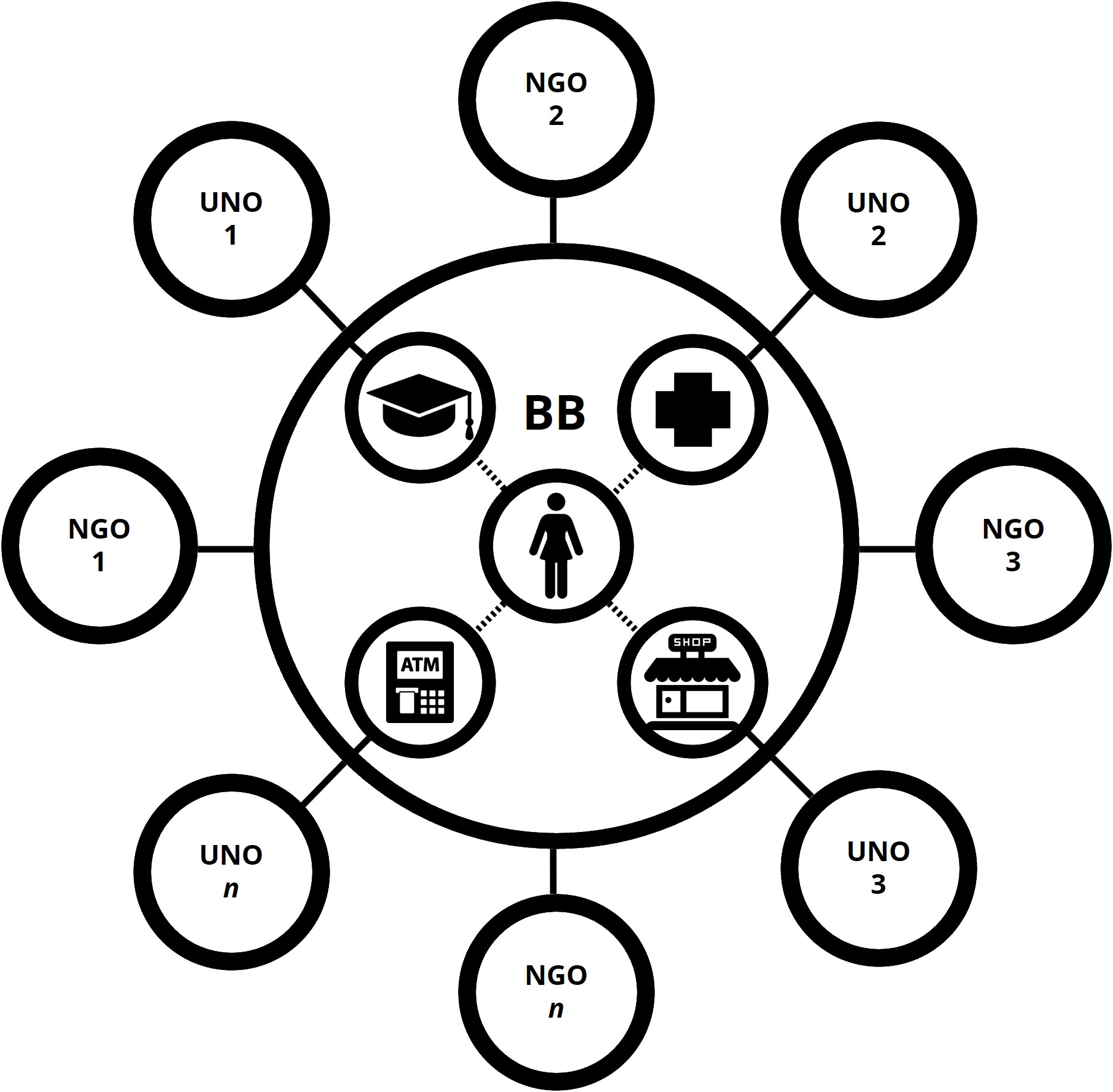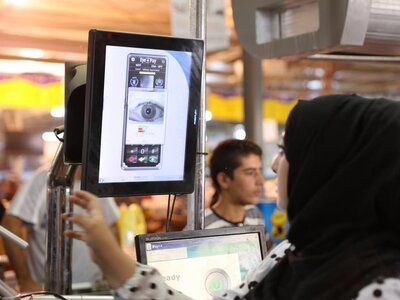Building Blocks
- 4 million
- people supported each month
- US$555 million
- in cash-based transfers processed to date
- US$3.5 million
- in bank fees saved
Background
The global humanitarian landscape has become increasingly complex, and people in need often receive assistance from multiple organizations. Without shared information among different organizations on who is assisting whom, and with what type of support, people can inadvertently receive more or less than they need.
Building Blocks (BB) – the world’s largest humanitarian use of blockchain technology – is changing that. It allows organizations to work together, coordinate efforts and stretch resources farther, helping serve more people, more effectively than before.
Building Blocks

BB is a privately managed blockchain network (FAQ link) that connects various humanitarian organizations providing assistance. BB has adapted blockchain technology for specific humanitarian needs, including complex programme designs. Humanitarian organizations assisting the same people can channel assistance to the same blockchain account, where it is coordinated.
From the same account, people in need can access a variety of items allocated by different organizations, such as cash, food, education or health. This way, collective assistance is coordinated and equitable. People’s access to support is also simplified and more convenient.
BB capitalizes on the unique features of blockchain, particularly its neutrality—all organizations using the platform are equal owners and managers, with no hierarchy. In addition, many different humanitarian applications can be built using the network.
Results
BB serves more than 1 million refugees in Jordan and Bangladesh. To date, it has processed US$555 million of WFP cash-based interventions for food through 25 million transactions, and saved US$3.5 million in bank fees.
In 2019, UN Women joined Building Blocks. BB has assisted in the distribution of UNICEF water, sanitation and hygiene items, and UNFPA sexual and reproductive health items in Bangladesh.
BB was also rapidly deployed in response to the Beirut blast in August 2020, coordinating US$59 million of assistance to 130,000 people on behalf of 17 organizations.
In 2022, BB was deployed in Ukraine to help coordinate assistance to those affected by the conflict. As a result, between 1 May and 31 August 2022, 18 organizations used BB to flag potential unintended assistance overlap in US$337 million of assistance to 1 million unique households. Accordingly, BB prevented US$35 million of unintended assistance overlap, translating to an additional 185,000 possible transfers. thanks to the inter-organizational collaboration.
These trends continue, and 30 organizations are now using BB in Ukraine.
Offer
BB offers its codebase and knowledge for free to all reputable humanitarian organizations who join. The objective is for new members to help improve the shared network, deploying it for their own operations while also offering their developments for free to other members. This way, the equally owned and jointly operated network can grow organically into a comprehensive tool for the entire humanitarian community to increase the synergistic impact of limited donor resources.
In focus
Related topics
Contact global.buildingblocks@wfp.org for more information

